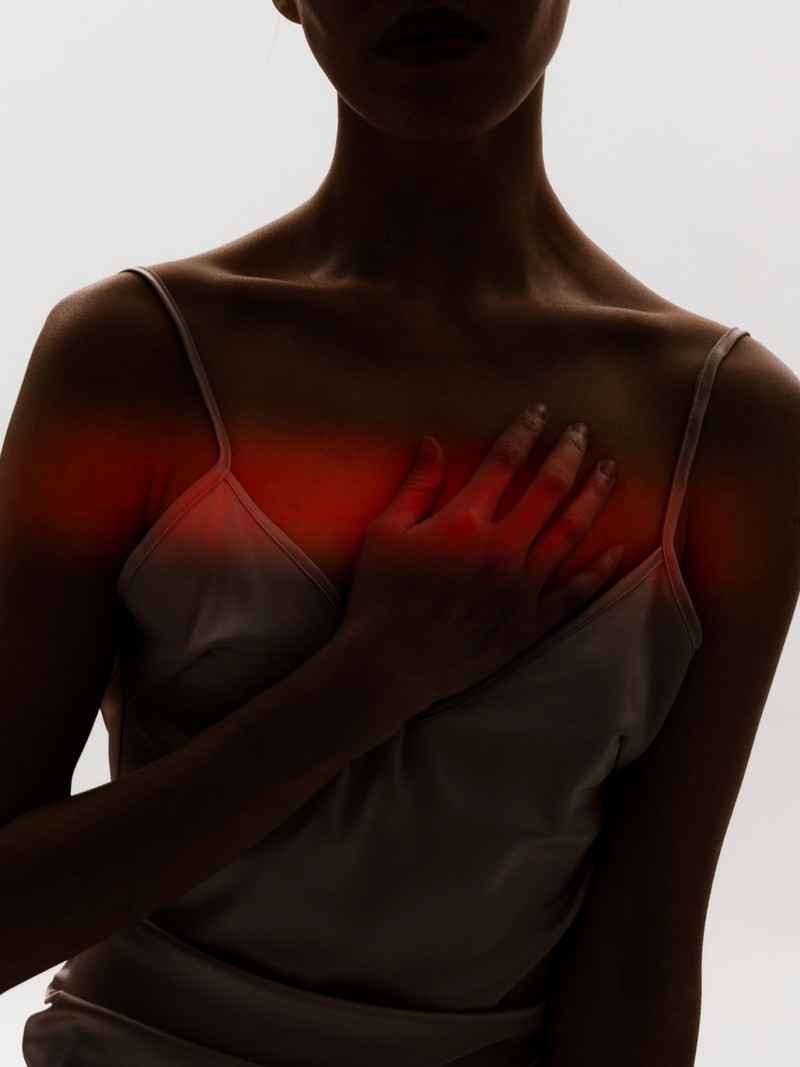
Everything You Need To Know About Heart Palpitations
What’s the medical definition of heart palpitations?
“Heart palpitations refer to the sensation of an irregular, rapid or forceful heartbeat. Medically, they are defined as an abnormal awareness of the heart's beating, typically felt in the chest, throat or neck. This sensation may result from the heart beating too fast (tachycardia), too slowly (bradycardia) or irregularly (arrhythmia). While heart palpitations are often harmless, they can sometimes indicate an underlying heart problem, especially if they are persistent or accompanied by other symptoms.” – Dr Oliver Segal, consultant cardiologist & electrophysiologist at The Harley Street Clinic
What do they feel like?
“They can vary widely in how they feel. Some people experience a rapid, pounding or racing heartbeat, often feeling like their heart is thumping in their chest. Others may feel a fluttering sensation or a skipped beat. In some cases, palpitations may be accompanied by a sensation of the heart flip-flopping in the chest or a feeling of light-headedness or shortness of breath. The sensation can occur at rest or during physical activity, and may last for a few seconds or several minutes.” – Oliver
Why do heart palpitations occur?
“Heart palpitations are common and not usually a sign of anything serious. Some common causes include strenuous exercise, lack of sleep, stress and anxiety, some medicines (check the leaflet that comes with the medicine), alcohol, caffeine, nicotine and recreational drugs. Some people can get them during pregnancy or menopause. Less often, they can be caused by medical conditions such as iron deficiency anaemia, an overactive thyroid (hyperthyroidism) or a heart rhythm problem (arrhythmia).” – Dr Paz Tayal, clinician scientist & clinical senior lecturer, National Heart & Lung Institute, & consultant cardiologist, Royal Brompton Hospital
Do heart palpitations always feel the same?
“The intensity of the sensation can differ. Some may barely notice it, while others may find it very noticeable or even distressing. The frequency and duration can also vary, with some people experiencing them only occasionally and others more regularly. The sensation may be felt in the chest, throat or even the neck, depending on the individual and the cause.” – Oliver
Are they usually benign?
“Heart palpitations can be benign and not linked to any serious health problem. In many cases, they are a normal response to factors such as stress, exercise, or the consumption of stimulants like caffeine. In fact, occasional palpitations are quite common and often do not indicate any underlying heart condition. However, if they become frequent, severe or are accompanied by other symptoms, it is important to seek medical advice to rule out any potential issues.” – Oliver
When should you worry about them?
“You should see a GP if you have heart palpitations that keep coming back or are getting worse. Or if they last longer than a few minutes, you have a heart condition, you have a history of heart problems in your family, or you're concerned about the palpitations. You should call 999 or go to A&E if you have heart palpitations with any of these symptoms: chest pain, shortness of breath or feeling faint or fainting.” – Paz
Are certain people more susceptible to having heart palpitations?
“Yes. This includes those who are anxious or stressed, as chronic stress or anxiety can trigger the release of adrenaline, leading to palpitations. Athletes or highly active individuals are susceptible too, as intense physical exertion can cause palpitations, especially if the heart is not accustomed to certain physical stress. Hormonal changes during pregnancy can affect heart rate and rhythm, while individuals with arrhythmias, heart valve problems or other cardiovascular issues may be more susceptible. Thyroid issues like hyperthyroidism (an overactive thyroid) can also cause the heart to beat faster, leading to palpitations. Finally, electrolyte imbalances, dehydration, low potassium or magnesium levels can cause the heart to beat irregularly.” – Oliver
What’s a common misconception about heart palpitations?
“That they are always a sign of a serious heart condition, like a heart attack. In fact, most palpitations are harmless and often occur due to non-cardiac factors, such as anxiety or excessive caffeine consumption. People often worry that palpitations mean their heart is ‘failing’, but in most cases this is not true. While they can sometimes signal a heart problem, they are typically benign when occurring in isolation or in response to temporary triggers.” – Oliver
Can heart palpitations ever be mistaken for another condition?
“Yes, it’s possible to mistake normal heart activity for heart palpitations. For example, it’s normal to have a faster regular heartbeat if you’re nervous or have just done strenuous exercise. In this case your heartbeat should settle back to normal quite quickly. However, it’s always best to see a doctor if you’re concerned.” – Paz
What about arrhythmias like atrial fibrillation (AF)?
Atrial fibrillation (AF) is a type of arrhythmia that causes a rapid and irregular heart rate, which can sometimes be experienced as palpitations. It’s important to be screened for AF if you have symptoms like irregular palpitations, as untreated AF increases the risk of stroke and heart failure, and may affect life expectancy. An ECG monitor can help clarify the diagnosis if AF is suspected. If you think you might be experiencing symptoms of AF, seeking medical advice for an ECG is key to obtaining a clear diagnosis and reducing the risks associated with this condition.” – Paz
DISCLAIMER: Features published by SheerLuxe are not intended to treat, diagnose, cure or prevent any disease. Always seek the advice of your GP or another qualified healthcare provider for any questions you have regarding a medical condition, and before undertaking any diet, exercise or other health-related programme.
DISCLAIMER: We endeavour to always credit the correct original source of every image we use. If you think a credit may be incorrect, please contact us at info@sheerluxe.com.





